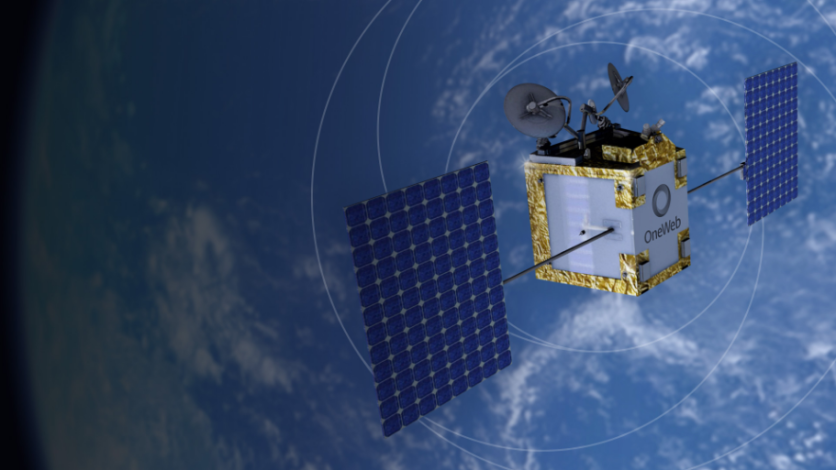
OneWeb and Relativity Space have announced a multi-year partnership that will see the first-of-its-kind 3D printing spacecraft firm providing multiple launches of next-generation satellites. The launches will kick off in 2025, with Relativity Space providing its Terran R spacecraft, a fully reusable and 3D printed rocket now on its fifth signed deal, in total amounting to a staggering $1.2 billion.
OneWeb announced the partnership in its own press release, citing that the firm's Gen 2 satellite will be deployed at low earth orbit (LEO) from Relativity Space's Launch Complex 16 at Cape Canaveral. OneWeb's Gen 2 satellites will be utilized in advancing the capacity of the company's 648 satellite plan already in motion. In Feb., the communications firm launched a total of 34 OneWeb satellites, allotting the existing in-orbit constellation to 428.
Founded in 2015, Relativity Space has been at the forefront of 3D printed aerospace technology, highlighted via the firm's Terran 1 rocket, its first-ever two-stage 3D printed spacecraft set to launch this summer. Its first launch mission is aptly termed "GLHF:" Good Luck, Have Fun.
Related Article: OneWeb, Starlink Satellites Almost Collide: US Space Force Saves Them Both; SpaceX to No Longer Catch Rocket Components?
Terran R, on the other hand, is the aerospace firm's secondary design scheme, a fully reusable 3D printed rocket capable of towing 20,000kg into LEO, as opposed to its predecessor's 1,250kg max payload. It's set to launch officially from Cape Canaveral as early as 2024. Both rockets utilize Relativity's fully 3D printed engines, specifically the Aeon Vac, which uses liquid oxygen and liquid natural gas as its main propulsion method.
Relativity Space more recently picked up a new software engineer in the form of Scott Van Vliet, former Microsoft corporate VP. The company is aiming beyond the stars in its reach to dominate the 3D aerospace fold, expressed best in a 2021 CNBC interview with Relativity Space CEO Tim Ellis, who spoke of the company's new 1 million square foot site as enabling the firm "to grow in the next couple of years but also the next decades to come."
The terms of the agreement between Relativity Space and OneWeb remain in secrecy, yet it acts as a perfect moment for the two firms in their quest to combat rivals like SpaceX. OneWeb is likewise even signed with SpaceX, along with New Space India, due to various sanctions derailing its agreement with the Russian's Soyuz rockets. Its deal with Relativity Space was already in talks before Russia's invasion of Ukraine, according to Relativity's Ellis, who spoke with TechCrunch.
Relativity has the printing capacity to construct even larger spacecraft, potentially some as large as Starship at SpaceX. Yet, most important for the over 800-strong company is its launch of Terran 1, a veritable proving ground for its 3D printed aerospace technology. Its maiden flight is scheduled for July 31 and will be livestreamed on the company's own YouTube channel.
ⓒ 2025 TECHTIMES.com All rights reserved. Do not reproduce without permission.




